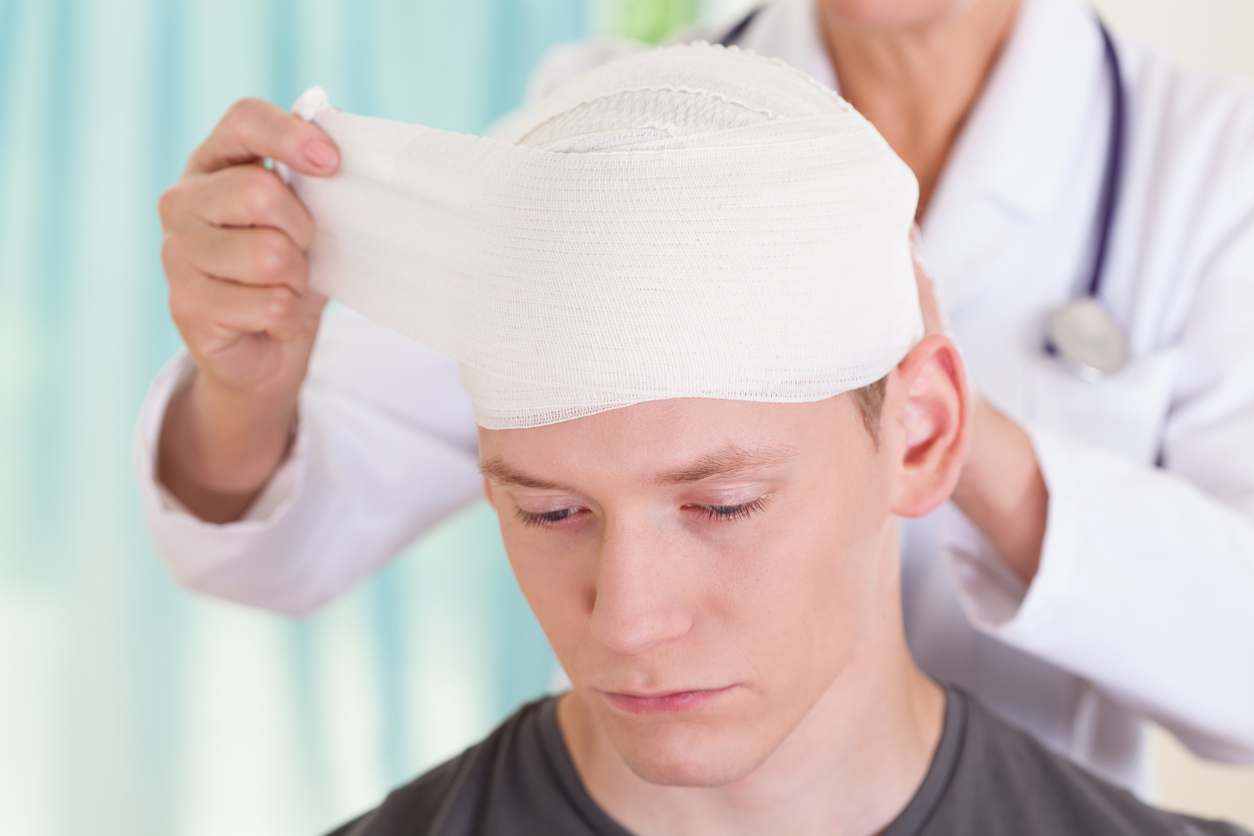Stephen Hasner | Brain Injury | June 3, 2022

A concussion is a mild form of traumatic brain injury (TBI), but don’t be fooled by the term “mild.” Any form of brain injury can have significant, life-altering symptoms.
If you’ve been injured on the job, in a car accident, or hit your head after a fall in the grocery store, you may have experienced a concussion and not realized it. Understanding delayed concussion symptoms can help you get the treatment you need after an accident.
What Causes Concussions?
Concussions typically happen when you receive a violent blow to the head or body, causing the brain to shake or twist around in the skull. This movement damages the brain tissue.
Common circumstances that can cause concussions include:
- Sports injuries
- Assault or violent crime
- Falling onto a hard surface or from a height
- Exposure to concussive forces, like those encountered in combat
- Vehicle collisions, including motorcycle, cycling, or pedestrian accidents
Any time you hit your head, you risk a concussion, even if you’re wearing a helmet. That’s why it’s so important to seek immediate medical attention if you’ve hit your head.
Many people may attribute concussion symptoms to just being “shaken up” after an accident. However, prompt medical attention can help you start treatment immediately and allow you enough time to rest and recover.
If you suffered a concussion after an accident someone else caused, you might have to miss work to rest and heal. The at-fault party may be liable for damages that include your medical care and lost wages from time missed at work.
What Are Some Concussion Symptoms?
Concussion symptoms affect you physically, cognitively, and emotionally. They can even affect your sleep.
Common symptoms include:
- Difficulty concentrating or fuzzy thinking
- Problems with memory or difficulty learning new information
- Headaches
- Blurry vision or double vision
- Dizziness or poor balance
- Nausea, vomiting, or loss of appetite
- Anxiety, mild depression, and irritability
- Sleeping more or less than usual, or nightmares
Concussion sufferers may experience several or all of these symptoms. Not all symptoms occur simultaneously; sometimes, people may have a delayed reaction to the concussion, or symptoms emerge hours, days, or weeks after the accident. Some symptoms are common as the brain heals itself after injury.
What Are Delayed Concussion Symptoms?
Although many concussion symptoms show up almost immediately, not all do. Delayed concussion symptoms may not mean that your brain injury worsens, but rather that it causes changes in your brain chemistry as the brain damage heals.
The most common delayed concussion symptoms are memory problems and headaches, fatigue, and trouble sleeping. Post-concussion syndrome is characterized by concussion symptoms that last after the one-to-four-week period concussions usually take to heal.
Some people may experience delayed concussion symptoms for up to a year or longer. Many doctors attribute post-concussion syndrome to structural changes in the brain caused by the injury.
What Are the Dangers of Re-Injury After Concussions?
Your brain is in a delicate state after a concussion, and part of your aftercare includes resting and taking it easy.
Even if you feel that your symptoms aren’t affecting your life, you have a higher risk of re-injury — often with worse consequences — if you suffer another concussion before you’ve recovered from the first. Refrain from activities that risk concussion.
Subsequent brain injuries cause severe brain damage, including swelling and bleeding, or permanently damaged tissue. You may have additional concussion symptoms that you didn’t experience before, or your symptoms may be more severe with subsequent brain injuries.
Don’t risk your health after an accident. Get prompt medical attention to diagnose a concussion, and follow your recovery directives to the letter. As you heal, take special care to avoid situations where you may have another head impact.
Contact the Atlanta Brain Injury Lawyers at Hasner Law, P.C. For Help
For more information, please contact the Atlanta brain injury law firm of Hasner Law P.C. at our nearest location to schedule a free consultation today. A trusted Atlanta workers compensation attorney will fight for your justice.
We serve in Fulton County, Chatham County, and its surrounding areas:
Hasner Law PC – Atlanta Law Office
2839 Paces Ferry Rd SE #1050
Atlanta, GA 30339
(678) 888-4878
Hasner Law PC – Savannah Law Office
221 W York St
Savannah, GA 31401
(912) 234-2334


